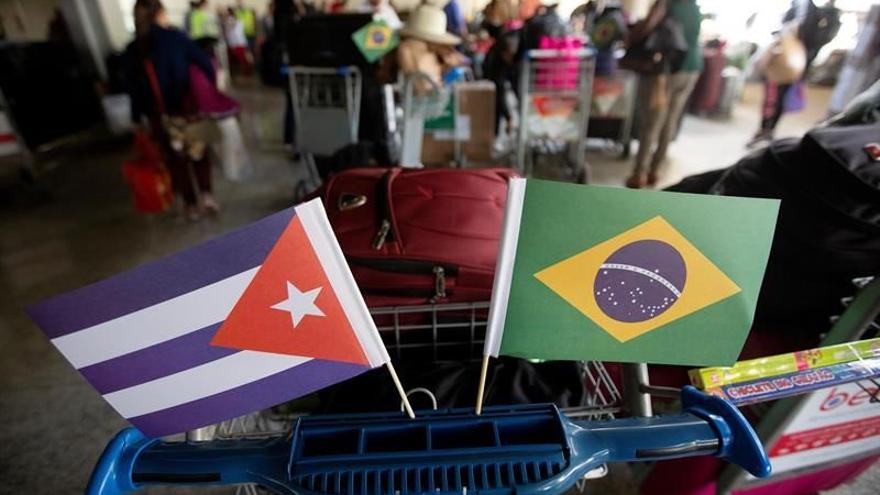
![]() 14ymedio, Madrid, 30 March 2022 — A US appeals court has rejected the appeal of the Pan American Health Organization (PAHO) which tried to paralyze the lawsuit filed by several Cuban doctors against them for facilitating the “human trafficking network” and “slavery” that, they argued, hid the Mais Médicos [More Doctors] program in Brazil. The news was released on Tuesday by the British agency Reuters.
14ymedio, Madrid, 30 March 2022 — A US appeals court has rejected the appeal of the Pan American Health Organization (PAHO) which tried to paralyze the lawsuit filed by several Cuban doctors against them for facilitating the “human trafficking network” and “slavery” that, they argued, hid the Mais Médicos [More Doctors] program in Brazil. The news was released on Tuesday by the British agency Reuters.
The lawsuit was filed in Florida in 2018 by Ramona Matos, Tatiana Carballo, Fidel Cruz and Russela Rivero, four Cuban health workers who denounced the working conditions they experienced as members of the medical cooperation program signed between Raúl Castro and Dilma Rousseff in 2013.
“There is an international organization (PAHO), affiliated with the United Nations, that became the main force to allow Cuba to export its citizens to do slave labor in a foreign country,” said the lawyer for the doctors at the press conference at which the lawsuit was filed.
The complainants consider that PAHO, the American section of the World Health Organization (WHO), violated the Law for the Protection of Victims of Trafficking by being an intermediary of the program, from which it channeled the payments. As is common practice in Cuba’s cooperation agreements, the contracting country, in this case Brazil, sends the money to Havana, which keeps percentages ranging from 70% to 90% of the salary paid for each worker, he explains, and this money goes to support the State.
According to the lawsuit, in the case of Brazil, 85% went to the Cuban government, 10% to doctors, and 5% was retained by PAHO through its mediation.
The United Nations health organization tried to stop the lawsuit using the immunity granted by US law. The courts considered themselves incompetent to judge an issue that occurred outside the country, but accepted that the claims could proceed from financial activity.
The organization then responded that the complainants were not suiing over the transactions, but rather the foreign conduct, but the courts considered that these movements of money were necessary for the alleged trafficking of persons and could in themselves be the cause of the opening of the judicial process.
PAHO raised more than $75 million through the Mais Medicos program and some $1.3 billion was deposited into Cuban state coffers using US bank accounts, according to the lawsuit documentation.
It is estimated that the Cuban authorities obtained some 11 billion dollars a year thanks to “human trafficking,” according to a study by the Wharton School of the University of Pennsylvania.
The doctors reported in 2018 that they were not informed until they reached their destination of how much they were going to be paid and that the amounts were very meager.
“They were going to give us a thousand dollars, of which 400 was going to be given to us in exchange (in local currency), and 600 dollars was going to go to our account in the Cuban bank,” said one of the plaintiffs, who added some of the general conditions already known, among them the control that the heads of mission exercise over the workers to control any movement, meeting or relations in the destination country.
____________
COLLABORATE WITH OUR WORK: The 14ymedio team is committed to practicing serious journalism that reflects Cuba’s reality in all its depth. Thank you for joining us on this long journey. We invite you to continue supporting us by becoming a member of 14ymedio now. Together we can continue transforming journalism in Cuba.
